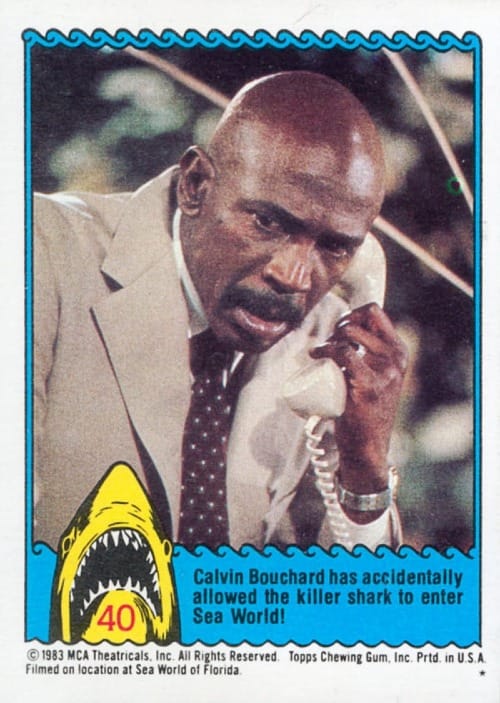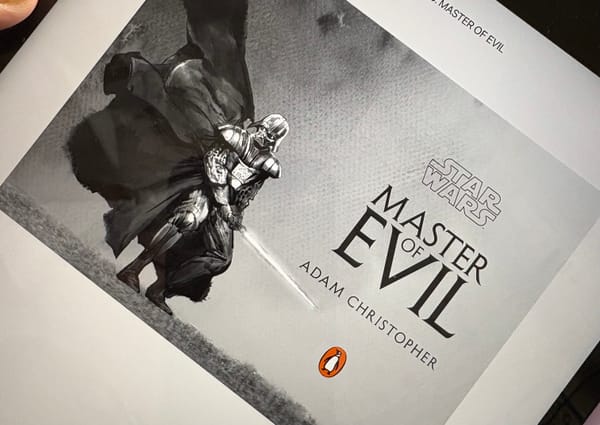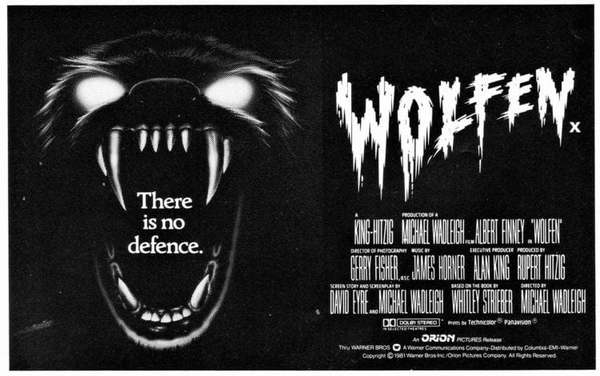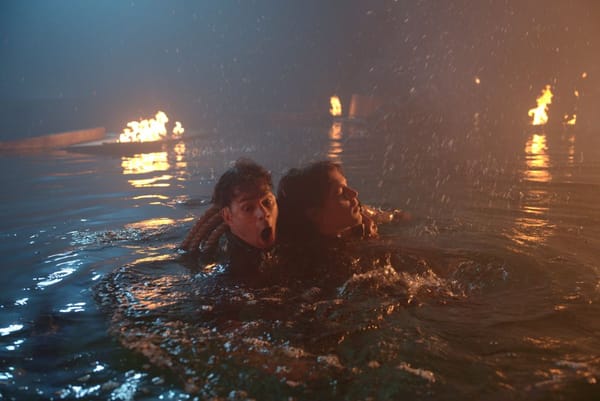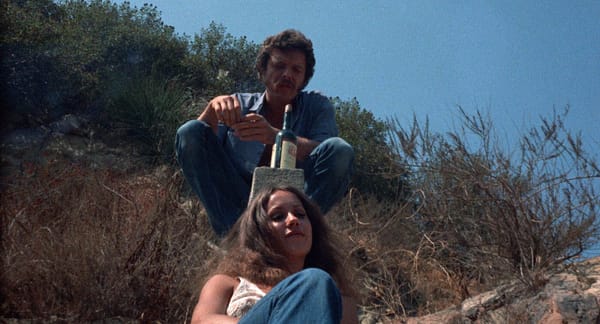Jaws @ 50
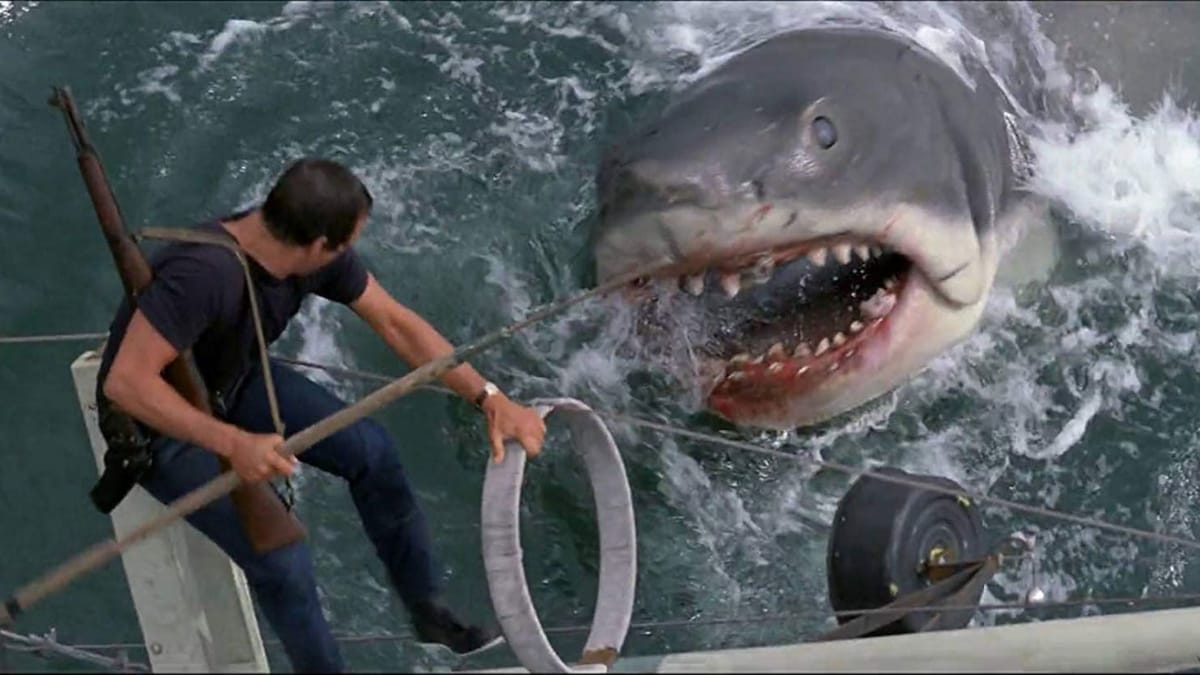
Fifty years of "Jaws" sounds insane, but more than that, it makes me feel really fucking ancient. I remember seeing the film on TV when I was like four or five, so the early 1980s, and just falling in love with it instantly. That's pretty much continued across those years, which I've spent recommending it to a lot of people, even going so far as to loan my personal letterbox VHS copy to customers when I worked in a video store that didn't have it to rent. There's also the tattoo ("don't tell me... your mother.")
So for the fiftieth anniversary, Amblin Documentaries have produced "Jaws @ 50," a feature-length documentary that promises the "definitive inside story" of the film. If you're a "Jaws" nerd like I am, you'll know that there have been a bunch of these already, from the laserdisc and later DVD documentary "The Making of Jaws" to the fan-made "The Shark Is Still Working." There was also one from BBC2 called "In the Teeth of Jaws" from around the '90s that I remember being good too. "Jaws @ 50" is directed by Laurent Bouzereau, who has been writing making-of books and creating special features for a long time - he also directed "The Making of Jaws." He also directed the recent documentary "Music by John Williams," and has also produced several soundtrack releases.
Across the documentaries, there are of course stories that reappear, and this is fine - it's important to realise that this is not made for fans as much as the general public who aren't aware of the name of the stuntman who doubled for Hooper in the cage scenes. And it does a fine job, looking at the making of a film organised by the sequence of scenes in the film, so starting with Chrissie's death and so on. Maybe the best thing is the plentiful use of footage from the production, be it Steven Spielberg's home movies or an extra's roving Super 8mm camera. There are also clips from other promotional videos and such, including some of the aforementioned documentaries, especially as several individuals such as Roy Scheider are no longer with us.
The film does have interviews with Robert Shaw's son Ian, who co-wrote and acted in the play "The Shark is Broken," and he looks remarkably like his father. There are also a number of marine biologists that speak, along with several of Hollywood's finest including Guillermo del Toro, James Cameron, George Lucas, Jordan Peele, Steven Soderbergh, Cameron Crowe, Emily Blunt, and J.J. Abrams. Out of that crowd, maybe Peele, Cameron, and del Toro have the most interesting things to say.
There are also appearances by Wendy Benchley (wife of the late Peter) and her sons, as the film takes a deeper look into the writing of Benchley's book and the transition from page to screen, and this is quite fascinating. There's a great sequence looking at the real shark footage shot by Ron and Valerie Taylor, and how Benchley was influenced by the wonderful documentary "Blue Water, White Death," which had featured the Taylors and I wrote about here. It would be nice to see the film get a special edition Blu-ray release, as it's still only available on DVD. Lionsgate had released a HD version on iTunes, but this appears to be no longer available.
Some other great moments including closer looks than before at some of the key sequences, such as Alex Kintner's death. Footage reviews for the first time a shot of the shark attacking a dummy on a raft, which if worked properly would have been quite terrifying. Jeffrey Voorhees a.k.a. Alex himself talks about the way they did the effect and how he was pulled down by divers and given are while a cannon exploded topwards with a fountain of blood.
There's some fun stuff with art director Joe Alves and details about his concept art and how he designed the shark with famed effects artist Robert Mattey ("20,000 Leagues Under the Sea"). It's also fascinating hearing some of the scientists talk about how great the much-maligned shark still looks, and how much it actually looks like a real great white. I still love Bruce, and so does Greg Nicotero, and it has a small part showing his job of restoring the original shark for the Academy museum.
One of the most important parts, and one I would watch as its own documentary, shows the impact of "Jaws" on real-life sharks, including the way humanity went for genocide against the great white shark, even going so much as to wipe out 80% of the population. Insane. Thankfully, white sharks have long been protected, although there are still people who would rather they die en masse instead of one occasionally nibbling on a human - just look at the Australian controversy over drum lines and nets. The film did however eventually inspire a lot of people, myself include, to be fascinated by sharks - I wonder what percentage of kids who said they wanted to be a marine biologist when they grew up actually made it.
The one places where "Jaws @ 50" misses is its treatment of John Williams' score, which is surprising considering Bouzereau had directed the documentary about the composer. Others may not pick this up because they're not as much of a film score nerd as I am, but a weird thing in the picture is that none of the clips of "Jaws" are accompanied by music. Even when the music is briefly discussed, which uses archive clips of Williams, they just use a portion of the main title cue over a quickfire montage of scenes. It's especially weird when clips of the Indianapolis scene are shown, with silence behind Shaw instead of that dramatically eerie cue. I dunno, maybe he thought he'd already covered it in "Music by John Williams," but given the problems they had with the shark, the score is maybe %50 responsible for the success of the picture, and this doesn't really reflect that. There is a score by Blake Neely, but it's fairly unobstructive and just feels like it was literally made for people to talk over.
Other than that, it's a fine piece. As I said earlier, this is not made for me, so when I say I'm not that interested in hearing Abrams or Crowe or Blunt talk, I understand your average Hulu viewer may not have that viewpoint. But really, it's a great and surprisingly speedy watch, it tells you things about the film that I didn't know, and the home footage makes it essential viewing.
Saying that, there's no mention of the sequels, which means no mention of "Jaws 3-D." What the fuck, Laurent? How else are people going to learn about Calvin Bouchard?
